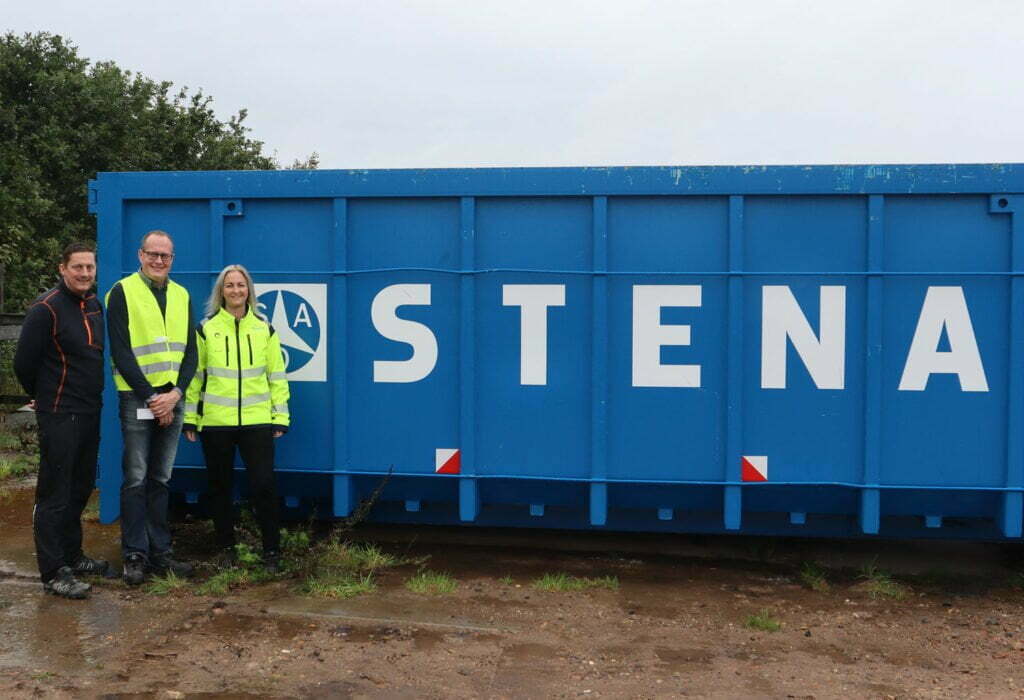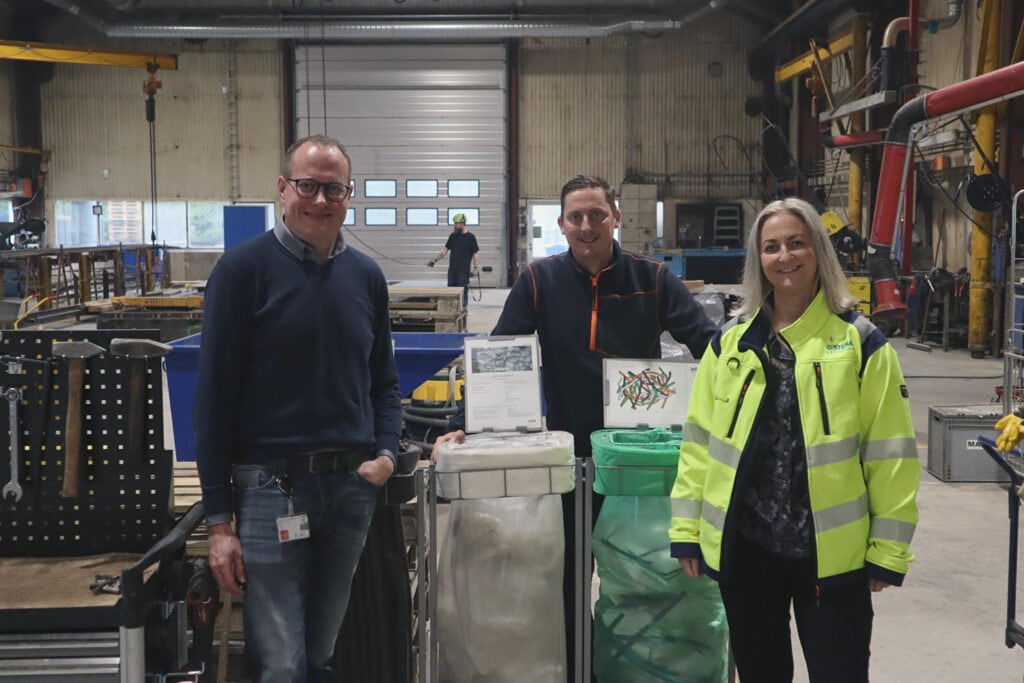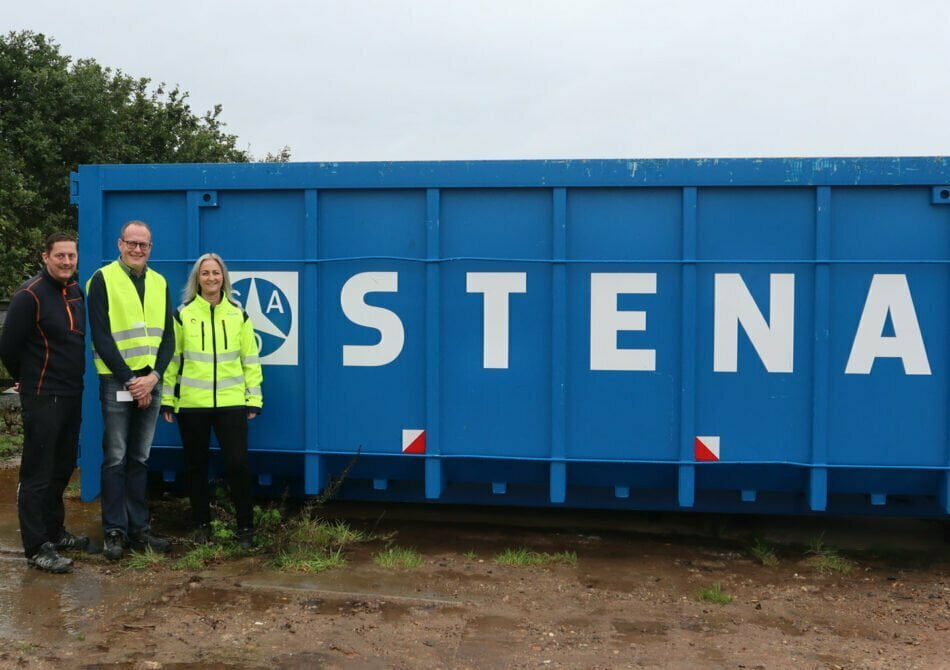New waste reporting rules will impact the business community in 2025. The rules pose a big challenge for a company like Priess A/S in Vinderup, which wants to reduce the amount of waste and increase recycling. An agreement with Stena Recycling A/S will tackle the new rules head-on and pave the way for meeting green targets.
Priess A/S has grown considerably in recent years. As a supplier of technical cabins for the utility sector and the digital infrastructure, the company is already a key player in the entire green transition and is therefore compelled to play a part in the climate agenda. The company has stepped up its waste and recycling objectives, but the number of waste types is increasing, and new regulations are just around the corner.

“We used to have several buyers for our waste, but with the new reporting rules coming into force from 2025 and obliging us to submit a comprehensive report on recycling and carbon footprints, having multiple buyers is just too problematic. That’s why we’re streamlining and aligning our waste management by collaborating with Stena Recycling,” says Karl Bruzen, warehouse and logistics manager at Priess A/S.
“We have to make it as easy as possible for Priess to collect waste and document the results. Priess has a stated objective to become better at recycling, and we are advising the company on how to do just that so they can increase the degree of recycling while also reducing the amount of waste,” says Maiken Villerup, Strategic Account Manager at Stena Recycling.
From here on, Stena Recycling will handle the collection of all types of waste from Priess. The waste currently includes 20 fractions, such as metal, plastic, chemistry, iron/metal and concrete. The annual amount of waste is estimated at 400-500 tonnes.
Expert advice leads to reduced waste
“As an experienced company in the iron industry, we have a good handle on sorting metals to ensure they are recycled as efficiently as possible. As part of the agreement, however, we have asked Stena Recycling to go through all fractions in order to further optimise handling,” says Martin Olesen, QHSE coordinator at Priess.
There has been a particular focus on reducing the amount of waste, and especially within residual waste, combustible waste and waste for landfill.
“We currently split our waste into a total of 20 different fractions, and thanks to expert advice, we have been able to significantly reduce landfill and residual waste. We now sort plastic into clear and coloured acrylic, which has increased recycling significantly and reduced the fraction of combustibles,” says Martin, who adds that the plan is to reduce combustible waste and landfill by up to 50 percent.
Reporting ahead of the new rules
As part of the partnership, Stena Recycling provides a customer portal with data and information about the company's waste, landfill saved, carbon footprint, carbon saved, etc. This puts Priess and Stena Recycling's 2025 reporting rules ahead of the game, because now Priess can have the necessary data to hand for audits and ESG accounts, where there is a particular focus on carbon footprints and recycling.
“The customer portal is a great tool because they can monitor how much waste is recycled, how much goes to landfill and how much goes to energy utilisation. We can see that it motivates the company to get better at sorting and thus increase the proportion that is recycled” says Maiken.
Meanwhile, the upcoming regulations' increased requirements for traceability are met, because the documentation from Stena Recycling and their partners is already in place for recycling and the further handling of waste from Priess' production.
“A reasonable amount of our materials can be recycled, and from 2025 we must be able to document that this also happens in practice,” explains Martin.
Priess sells its technical cabins mainly to the utility sector, where the cabins are part of the green transition. According to Karl Bruzen, there is no doubt that the utility companies will make great demands on their suppliers about reducing carbon footprint and having a well-documented waste management in place.
The new initiative puts Priess one step ahead of the developments and future requirements,” he states.
Change of attitude essential
According to Martin Olesen, the QHSE coordinator at Priess, the company has already gained valuable experience: “We can recycle far more plastic than we thought possible. But we can also see that it will probably take slightly longer than we expected to implement the new approach to waste.
Our partnership with Stena Recycling helps here, because they know exactly what needs to be done to achieve the business community’s big environment and climate objectives.
The process also means that we have started to look inward to see if we can replace any of our purchased materials with other and more sustainable ones,” says Martin.
His colleague, warehouse and logistics manager Karl Bruzen, adds: “The process enables us to set more precise and ambitious targets for the reduction and recycling of our waste. Our key customers are large utility companies, and we must be able to offer them documentation that proves we are able to control our carbon footprint, waste volumes and ensure proper recycling. And we can do that now.”
Martin Olesen, Karl Bruzen from Priess A/S and Maiken Villerup, Strategic Account Manager at Stena Recycling A/S

